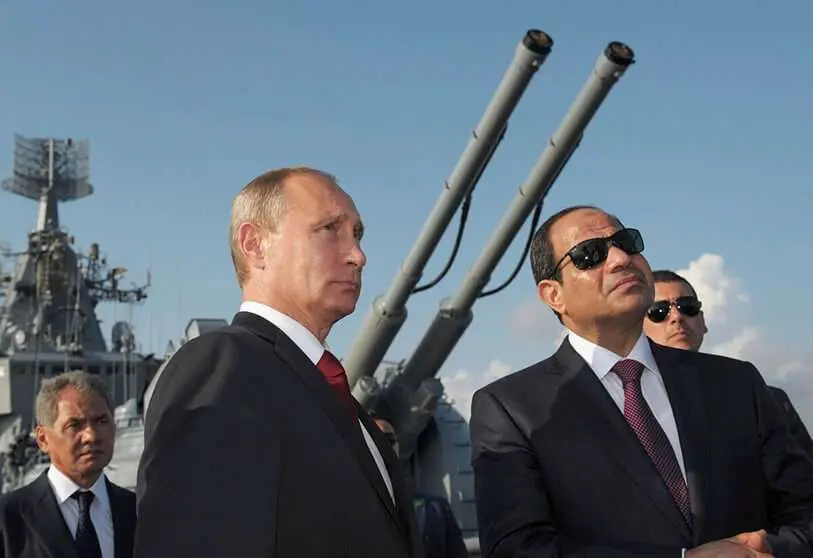Russia strengthens space collaboration with Saudi Arabia, Emirates, Egypt, Kenya and Tunisia

Russia's Federal Space Agency (Roscosmos) has scheduled a Russian Soyuz rocket to take off from the Baikonur Cosmodrome, a huge facility in the republic of Kazakhstan, which the Kremlin has leased from the government of Kasim-Yomart Tokayev, the country's president since March 2019, on March 20.
The day chosen for the launch coincides with the 65th anniversary of Tunisia's Independence Day, which on that day will put its first space platform into space, intended as a precursor to future initiatives funded by the government of Prime Minister Hichem Mechichi.
The first satellite from the African continent to fly into space in 2021, Challenge ONE is a nano-satellite from the Tunisian industrial corporation Telnet owned by tycoon Mohamed Frikha. A business group dedicated to the development of electronic products for telecommunications, aeronautics and energy, Challenge ONE has become a reality with the collaboration of the Russian company Sputnix, specialised in components and technologies for micro satellites.

The Challenge ONE is a Cubesat weighing 3 kilos and measuring 30x10x10 centimetres, whose purpose is to validate the technologies it incorporates, with the intention of deploying a future constellation of 30 nano-satellites, which should be placed in orbit from 2023.
Organised by GK Launch Services, the commercial arm of Roscosmos, 17 other space platforms from different countries will travel aboard the Russian rocket, including the small DMSat-1 environmental device from the Union of Arab Emirates. Weighing just 15 kilos, the nano-satellite will be positioned in orbit 730 kilometres above the Earth's surface to determine the air quality over the country's territory, especially over Dubai, UAE's most populous city.

The small DMSat-1 platform is the result of an agreement signed in 2016 between the Dubai Municipality and the Mohammed bin Rashid Space Centre to develop a nano-satellite equipped with instruments to carry out multispectral observations in the visible and near-infrared bands. The aim is to detect and monitor the volume of aerosols and quantities of greenhouse gases in the Emirates' atmosphere.
The data provided by DMSat-1 will complement the data collected by the network of air quality monitoring stations operated by the UAE Ministry of Climate Change and Environment, and will be used to locate the main sources of pollution in the country, an effort being promoted by Minister Thani bin Ahmed al-Zeyoudi.

DMSat-1, like most of the other nano-satellites, will be launched into space from a structure developed for the occasion by Russia's NPO Lavochkin, including Saudi Arabia's Najm-1 optical observation satellite, on which little else is known.
Another small satellite to fly on Soyuz will be SIMBA, an international initiative to track the behaviour and migration of wildlife in Kenya's National Parks.
A joint project between La Sapienza University in Rome, Tel Aviv University in Israel and Nairobi University in Kenya, tracking sensors have previously been placed on animals of various species and sizes, from birds to large mammals such as lions, giraffes and elephants.

Egypt is not sending any satellites aboard the Soyuz launcher, but is in final talks with Russia to reach a bilateral agreement on scientific and technological cooperation in space.
This agreement is part of The Comprehensive Partnership and Strategic Cooperation agreement signed in October 2018 between Vladimir Putin and Egyptian president Abdel Fattah al-Sisi, which only came into force on January 10 this year due to delays in its ratification by Egypt.
The negotiating teams are headed by Russian Federal Space Agency (Roscosmos) CEO Dmitry Rogozin and Egypt's ambassador to Moscow, Ihab Nasr. The two have already worked out the details of the terms of an agreement to facilitate the presence of the Egyptian Space Agency (EgSA) and the access of Egyptian scientists to Russian space programmes.

The Cairo government has its sights set on having a group of Egyptian military pilots trained as astronauts in Russia so that, at the earliest possible opportunity, they can travel in a Soyuz capsule to the International Space Station. Based on the length of the selection process in Egypt and the training phase in Russia, the presence of Egyptian astronauts in space may not become a reality until 2023 at the earliest.











